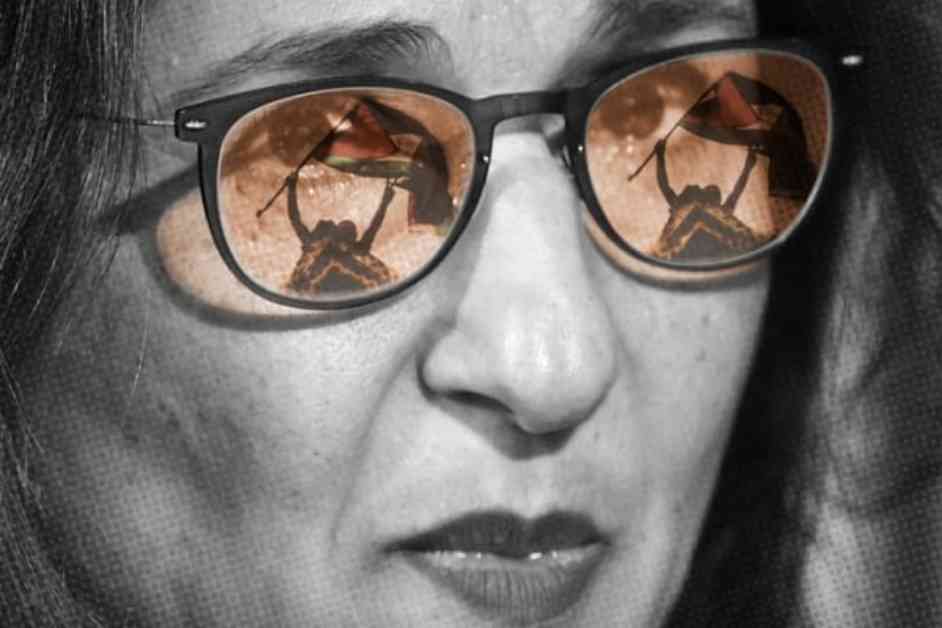Columbia University President Minouche Shafik’s sudden resignation has sent shockwaves through the academic community, making her the third campus leader to step down in recent months amid Congressional pressure related to student protests surrounding the conflict between Israel and Hamas. This decision comes as a surprise to many, especially considering Shafik seemed to have weathered the storm of criticism following her own grueling hearing before the House Education and Workforce Committee in April.
Reasons for Resignation
While Shafik managed to maintain the support of Columbia’s board of trustees after facing backlash from lawmakers, students, faculty, and alumni, questions remain about the timing of her resignation. Why did she choose to step down just weeks before the start of the fall semester, especially during a period of relative calm on campus? The move seems more fitting for the tumultuous spring semester when student protests resulted in arrests and intensified scrutiny of Shafik’s leadership.
In her resignation letter, Shafik mentioned that over the summer, she had the opportunity to reflect and decided that stepping down at this point would best position Columbia to navigate the challenges ahead. She emphasized the importance of having new leadership in place before the new term begins. However, Columbia University has not provided further clarification on the circumstances surrounding Shafik’s departure.
Impact of Resignation
Following her resignation, Shafik revealed plans to work with the United Kingdom’s Foreign Secretary in an international development role, leveraging her expertise in the field. With her diverse citizenship background and prior experience as a member of the U.K. House of Lords, Shafik’s transition to this new role seems like a natural progression. However, the exact timeline of her discussions with the U.K. government remains unclear, as no formal communication took place before the recent elections.
Dr. Katrina Armstrong has been appointed as the interim president of Columbia University, taking over the reins as the fall semester approaches. However, students have already indicated that protests are likely to resume under Armstrong’s leadership if their demands, including divestment from Israel and profiteers of the war, are not met. The Students for Justice in Palestine group has issued a warning to any leader who ignores their calls for divestment, drawing parallels to Shafik’s resignation.
Faculty and students alike have expressed discontent with Shafik’s handling of the occupation of Hamilton Hall by protesters and her performance before Congress. Many believe she failed to defend professors targeted by lawmakers, leading to further criticism of her leadership. Some faculty members have accused Shafik of capitulating to Congressional pressure and undermining academic freedom on campus, ultimately contributing to her downfall.
Response from Advocacy Organizations
In the aftermath of Shafik’s resignation, free speech advocacy organizations and the American Association of University Professors (AAUP) have condemned her leadership at Columbia. AAUP President Todd Wolfson criticized Shafik for suppressing academic freedom and free speech rights, as well as inviting punitive discipline and a police crackdown on student protests. This backlash highlights the broader implications of Shafik’s actions on the university’s academic environment and reputation.
Shafik’s Legacy
Shafik’s resignation follows the departure of Liz Magill from the University of Pennsylvania and Claudine Gay from Harvard University, both of whom faced public backlash and ultimately stepped down after their performances at Congressional hearings on campus antisemitism. While Shafik managed to navigate her own hearing in April, her resignation raises questions about the ongoing challenges faced by university leaders in addressing contentious issues such as student protests and Congressional scrutiny.
Looking Ahead
As the academic community grapples with the fallout of Shafik’s resignation, the appointment of an interim president and the potential for renewed protests at Columbia University underscore the need for effective leadership in navigating complex issues on campus. The legacy of Shafik’s tenure, marked by controversy and criticism, serves as a cautionary tale for university presidents facing similar challenges in the future.
In Conclusion
The resignation of Columbia University President Minouche Shafik has reverberated across the academic landscape, shedding light on the pressures faced by university leaders in addressing student protests and Congressional scrutiny. As Shafik transitions to a new role in international development, her departure raises questions about the impact of her leadership on academic freedom and campus dynamics. Moving forward, the appointment of an interim president and the potential for continued protests underscore the importance of effective leadership in navigating complex issues within higher education institutions.
